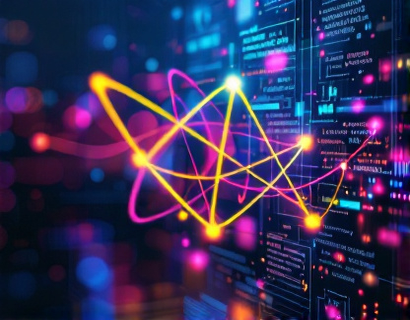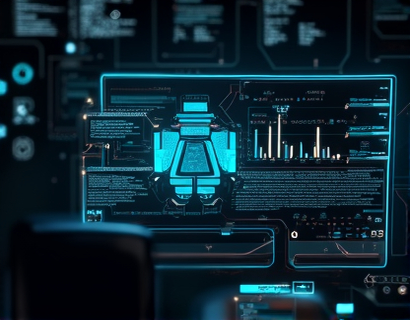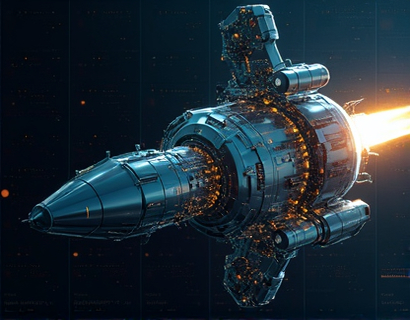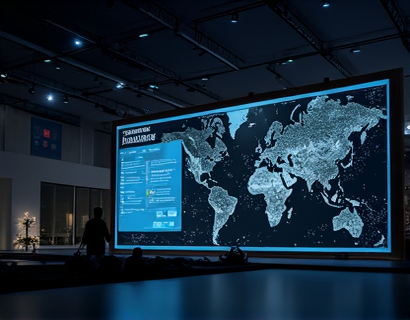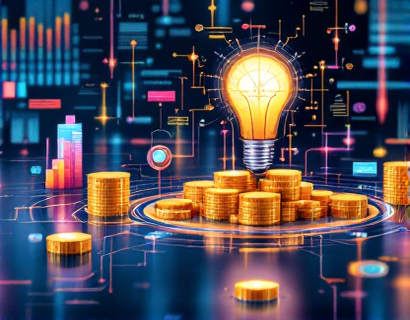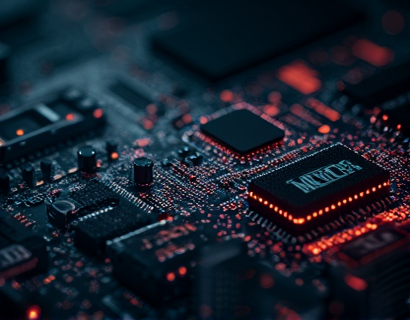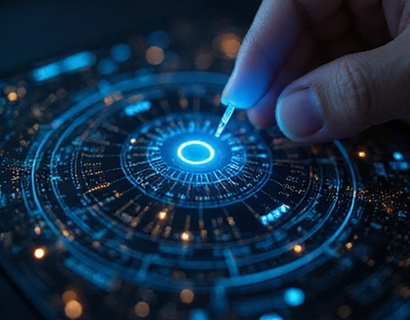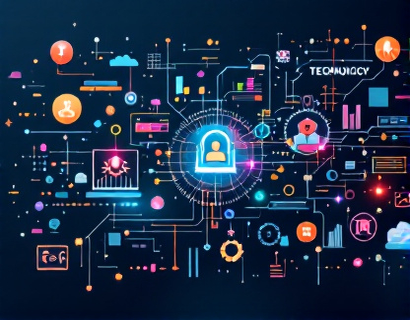Decentralized Transformation: Leveraging AI and Crypto for Next-Gen Digital Solutions with Advanced Ecosystem Integration
The digital landscape is undergoing a profound transformation, driven by the convergence of artificial intelligence (AI) and cryptocurrency. This shift is not merely an evolution but a revolution, promising to redefine how we interact with technology and each other. At the heart of this transformation lies the concept of decentralized digital solutions, which harness the power of AI and crypto to create more secure, efficient, and user-centric applications and services. This article delves into the intricate dynamics of this integration, exploring how it is shaping the future of interconnected apps and services, and enhancing user experience and engagement.
The foundation of this transformation is the decentralized ecosystem, a paradigm shift from traditional centralized systems. In a decentralized model, control and data management are distributed across a network of nodes, eliminating the need for a central authority. This approach not only enhances security by reducing single points of failure but also promotes transparency and trust among users. The integration of AI and crypto into this ecosystem amplifies these benefits, creating a robust framework for next-generation digital solutions.
AI and Crypto: Synergistic Powers
Artificial intelligence and cryptocurrency are two technologies that, when combined, unlock unprecedented potential. AI brings intelligence, automation, and predictive capabilities to the table, while cryptocurrency provides a secure, decentralized, and transparent means of transaction and data management. Together, they form a powerful duo capable of revolutionizing various sectors, from finance and healthcare to supply chain and entertainment.
One of the key synergies between AI and crypto is in the realm of smart contracts. Smart contracts are self-executing contracts with the terms of the agreement directly written into code. When integrated with AI, these contracts can adapt and learn from data, making them more dynamic and efficient. For instance, AI can analyze patterns and predict outcomes, enabling smart contracts to execute more complex and nuanced agreements automatically.
Another area where AI and crypto intersect is in data security and privacy. Blockchain technology, the backbone of cryptocurrency, ensures that data is immutable and tamper-proof. AI can enhance this by detecting and mitigating potential security threats in real-time. Machine learning algorithms can analyze vast amounts of data to identify anomalies and patterns that indicate security breaches, allowing for proactive measures to protect user data.
Enhancing User Experience and Engagement
The integration of AI and crypto into decentralized digital solutions significantly enhances user experience and engagement. One of the primary ways this is achieved is through personalized and intuitive interfaces. AI-driven algorithms can analyze user behavior and preferences, tailoring the user experience to individual needs. This personalization extends to content recommendation systems, financial advice, and even virtual assistants, making interactions more seamless and relevant.
Moreover, the use of blockchain and cryptocurrency in these solutions ensures that transactions are secure and transparent. Users can verify transactions and access their data without intermediaries, reducing friction and building trust. This transparency also fosters a sense of community and shared ownership, as users can see the impact of their contributions to the ecosystem.
Gamification is another strategy powered by AI and crypto to boost user engagement. By incorporating elements of game design, such as rewards, challenges, and leaderboards, decentralized applications can motivate users to participate more actively. Cryptocurrency tokens can serve as incentives, rewarding users for their contributions and encouraging a more active and engaged user base.
Advanced Ecosystem Integration
The true power of AI and crypto in decentralized digital solutions lies in their ability to integrate seamlessly with various technologies and platforms. This integration creates a cohesive and interconnected ecosystem where different services and applications work together harmoniously. The result is a more robust and versatile digital environment that can adapt to diverse user needs and preferences.
One of the key components of this advanced integration is the development of interoperable protocols. These protocols enable different blockchain networks and decentralized applications to communicate and exchange data seamlessly. AI plays a crucial role in managing and optimizing these interactions, ensuring that the ecosystem remains efficient and scalable. For example, AI can dynamically adjust resource allocation based on network demand, preventing bottlenecks and ensuring smooth operations.
Another aspect of advanced ecosystem integration is the use of decentralized identity management. Traditional identity systems are often centralized and vulnerable to breaches. By leveraging blockchain and AI, decentralized identity solutions can provide users with control over their personal data, ensuring privacy and security. AI can enhance this by verifying identities through biometric data and behavioral patterns, reducing the risk of fraud and unauthorized access.
Case Studies and Real-World Applications
To better understand the practical implications of AI and crypto integration in decentralized digital solutions, let's explore a few real-world applications. One notable example is in the finance sector, where decentralized finance (DeFi) platforms are redefining traditional banking. These platforms use smart contracts and AI to offer a range of financial services, from lending and borrowing to trading and insurance, all without intermediaries. The transparency and security provided by blockchain, combined with AI-driven risk assessment, make these services more accessible and reliable.
In the healthcare sector, decentralized health records powered by blockchain and AI are transforming patient care. These systems allow patients to control their medical data, sharing it securely with healthcare providers as needed. AI algorithms can analyze this data to provide personalized treatment recommendations and predict health outcomes, leading to more effective and efficient care. The immutability of blockchain ensures that patient records are tamper-proof, enhancing trust and accuracy.
Another exciting application is in the supply chain industry. Decentralized tracking systems using blockchain and AI can provide real-time visibility into the movement of goods, from production to delivery. This transparency helps in identifying bottlenecks, reducing fraud, and ensuring compliance with regulations. AI can optimize logistics by predicting demand and adjusting supply chains dynamically, leading to cost savings and improved efficiency.
Challenges and Future Prospects
Despite the immense potential, the integration of AI and crypto in decentralized digital solutions is not without challenges. One of the primary concerns is scalability. Current blockchain technologies often struggle to handle high transaction volumes, which can limit the practicality of decentralized applications. However, ongoing research and development in areas like sharding and layer 2 solutions are addressing these issues, paving the way for more scalable and efficient blockchain networks.
Regulatory uncertainty is another challenge. The decentralized nature of these technologies often conflicts with existing legal frameworks, leading to ambiguity and hesitancy among businesses and users. As the ecosystem matures, it is crucial for regulators to develop clear and supportive policies that foster innovation while protecting consumers.
Looking ahead, the future of AI and crypto integration in decentralized digital solutions is promising. Advancements in AI, such as quantum machine learning and edge computing, will further enhance the capabilities of these systems. The growing adoption of cryptocurrencies and the increasing awareness of blockchain's benefits will drive more businesses to explore decentralized solutions. As the technology becomes more user-friendly and accessible, we can expect a widespread transformation across various industries, leading to a more decentralized, secure, and user-centric digital world.



